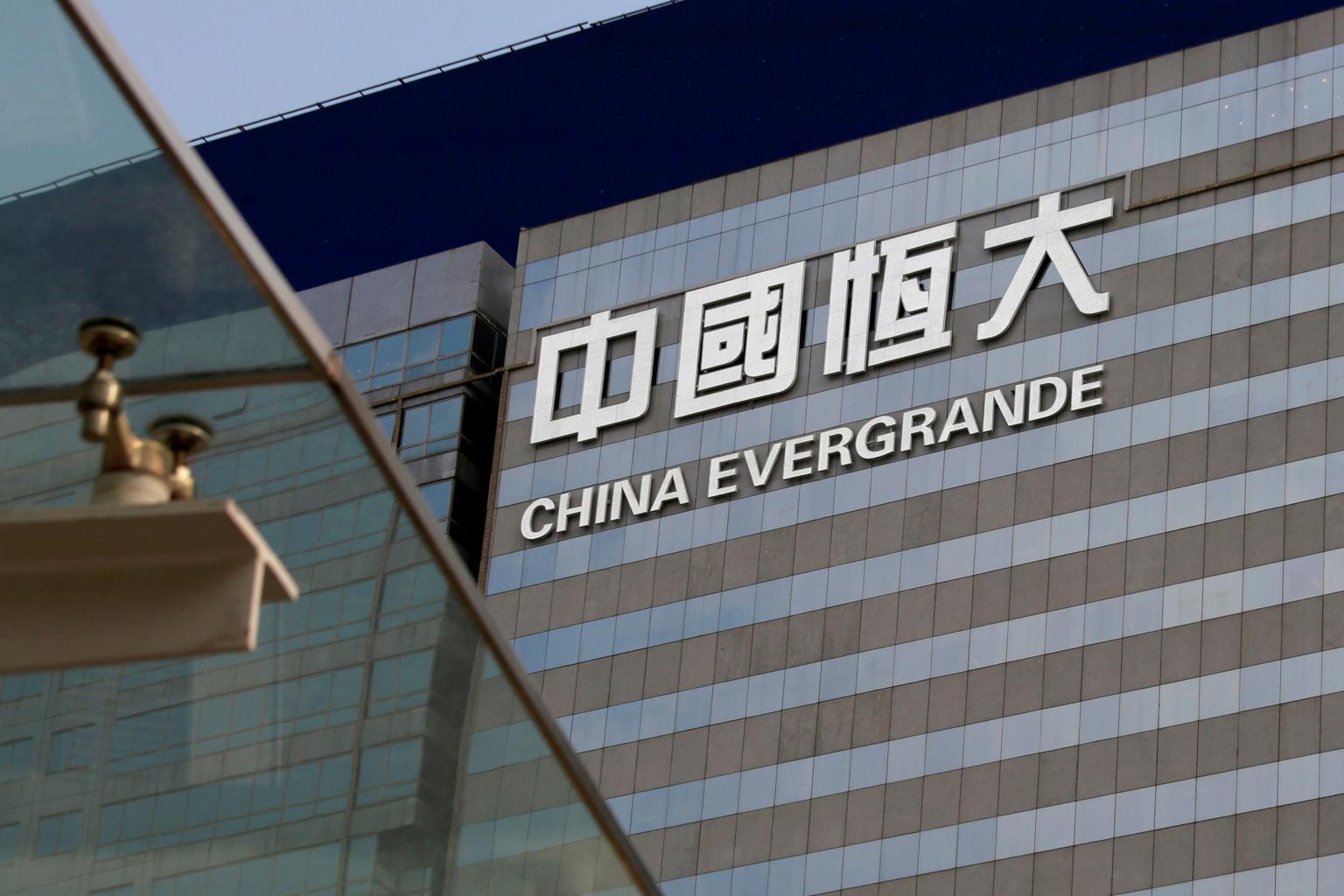China Evergrande bonds halted; world's most indebted developer hit by fears of cash crunch
Sign up now: Get ST's newsletters delivered to your inbox

Evergrande said in a statement that online social media posts about its asset restructuring plans are "made up" without specifying details.
PHOTO: REUTERS
HONG KONG (BLOOMBERG, REUTERS) - China Evergrande bonds were halted on Friday (Sept 25) after plunging following reports that it warned officials it faces a potential debt default that could roil the nation's financial system if it does not get approval for a stock exchange listing.
The Shanghai Stock Exchange said on Friday that it had temporarily suspended trading in two bonds issued by Evergrande Real Estate Group due to abnormal fluctuations.
The suspensions applied to the company's 6.27 per cent May 2023 and 6.8 per cent May 2024 bonds.
Shares of China Evergrande Group, the nation's No 2 property developer, dropped as much as 4.6 per cent on Friday in early trade, on market concerns over its cashflow.
The world's most indebted developer warned Chinese officials it faces a potential debt default that could roil the nation's US$50 trillion (S$68.7 trillion) financial system unless regulators approve the company's long-delayed stock exchange listing, Bloomberg reported.
China Evergrande Group mapped out the scenario in an Aug 24 letter to the Guangdong government seen by Bloomberg, in which the company sought support for a restructuring proposal needed to secure the listing and avert a cash crunch.
Evergrande said late on Thursday a document circulating online about a reorganisation of its subsidiary Hengda Real Estate was a fabrication and defamation, and said it has reported the matter to public security authorities.
Some of Evergrande's biggest strategic investors have the right to demand their money back if the company fails to win approval for a backdoor listing on the Shenzhen stock exchange by Jan. 31. If investors refuse to extend the deadline, Evergrande will need to repay as much as 130 billion yuan (S$26.2 billion), equivalent to 92 per cent of its cash and cash equivalents.
That may lead to "cross defaults" in Evergrande's borrowings from banks, trusts, funds and the bond market, eventually leading to systematic risks for the broader financial system, according to the letter sent to the provincial government of Guangdong, where the company is based.
Calls to the media office of the Guangdong government on Thursday (Sept 24) went unanswered.
"The relevant documents and pictures are fabricated and are pure defamation, causing serious damage to the company's reputation," Evergrande said in a statement. "The company strongly condemns such acts and has reported the case to the public security authorities. The company will take all legal actions to protect the legitimate rights and interests of the company."
It added that the firm generated 400 billion yuan of cash inflows from project sales in the first eight months and maintains healthy operations. It didn't address questions on whether it sought help from the government.
S&P Global cut its outlook on Evergrande's B+ credit rating to negative from stable on Thursday.
"We believe China Evergrande Group's liquidity is weakening amid the continual increase in short-term debt obligations and potential repayment of a portion of its China domestic 'A-share' strategic investments in January 2021," S&P said.
Still, the ratings company downplayed the risk of a liquidity crunch, noting that Evergrande is trying to convince strategic investors to stay put and is an "asset-rich" company with multiple fundraising channels. Evergrande's sales will likely remain steady in 2020, S&P said.
Chinese policy makers have a long history of supporting systemically important companies to maintain financial stability. While the government has sought to instill more market discipline and reduce moral hazard in recent years, authorities bailed out several troubled regional lenders in 2019 and have helped engineer at least six bank mergers since May.
PROPERTY BELLWETHER
Evergrande is viewed by investors as a bellwether for China's highly leveraged property sector. The company's total debt edged up 4 per cent to 835 billion yuan at the end of June, compared with 800 billion yuan at the end of 2019. Net debt swelled to a record 631 billion yuan on a weaker cash buffer, Bloomberg calculations show.
Evergrande in August reiterated an aggressive deleveraging target - cutting borrowings by about 150 billion yuan each year from 2020 to 2022, or about half its current debt load. But so far it's fallen short of the pledge.
The company has since launched a nationwide sales blitz to recoup cash, raised US$3 billion by selling a stake in its service arm and reduced spending on land purchases. It expects total investment on electric vehicles to be 29 billion yuan, lower than 45 billion yuan planned earlier.


